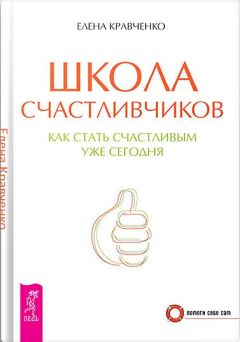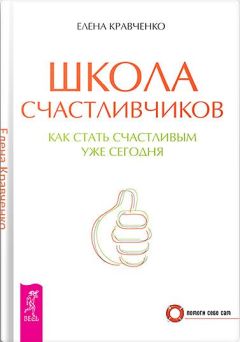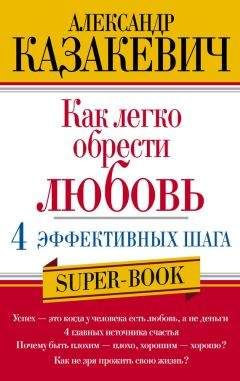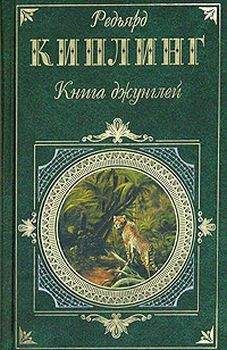Редьярд Киплинг - Английский с Редьярдом Киплингом. Рикки-Тикки-Тави / Rudyard Kipling. Rikki-Tikki-Tavi
Then the branches closed over his head again (затем над его головой снова сомкнулись ветви; to close – закрывать/ся/; смыкаться), and Kala Nag began to go down into the valley (и Кала Наг начал спускаться в долину) – not quietly this time (не спокойно на этот раз), but as a runaway gun goes down a steep bank (а как сбежавшая = сорвавшаяся пушка спускается = катится с крутого берега; runaway – беглый, сбежавший) – in one rush (стремительно: «в одном броске»; rush – стремительное движение, бросок). The huge limbs moved as steadily as pistons (громадные ноги /слона/ двигались равномерно, точно поршни; limb – конечность /человека или животного/), eight feet to each stride (шагая через восемь футов сразу: «восемь футов на каждый шаг»), and the wrinkled skin of the elbow points rustled (и морщинистая кожа на сгибах /его ног/ шелестела; wrinkle – морщина, складка; elbow – локоть; изгиб; point – точка; to rustle – трещать, шелестеть).
Toomai leaned forward and looked, and he felt that the forest was awake below him – awake and alive and crowded. A big brown fruit-eating bat brushed past his ear; a porcupine’s quills rattled in the thicket; and in the darkness between the tree stems he heard a hog-bear digging hard in the moist warm earth, and snuffing as it digged.
Then the branches closed over his head again, and Kala Nag began to go down into the valley – not quietly this time, but as a runaway gun goes down a steep bank – in one rush. The huge limbs moved as steadily as pistons, eight feet to each stride, and the wrinkled skin of the elbow points rustled.
The undergrowth on either side of him ripped with a noise like torn canvas (низкие заросли по обеим сторонам от него разлетались с шумом рвущегося холста; undergrowth – подлесок, подлесье; to rip – разрезать, распарывать, рвать/ся/; to tear – рвать/ся/), and the saplings that he heaved away right and left with his shoulders sprang back again and banged him on the flank (и молодые деревца, которые он разбрасывал = раздвигал своими плечами вправо и влево, отскакивали назад и хлестали его по бокам; sapling – побег, отпрыск, отводок; молодое деревце; to heave – поднимать; бросать, швырять; to spring – отскочить, распрямиться, пружинить; to bang – ударять, стучать /с шумом/; flank – боковая часть чего-либо; /воен./ фланг), and great trails of creepers, all matted together (а длинные: «большие» гирлянды лиан, переплетенные друг с другом: «все вместе»; trail – след; стелющийся побег; matted – спутанный /о волосах/; to mat – сбивать, спутывать, сваливать в ком /траву, шерсть/), hung from his tusks as he threw his head from side to side and plowed out his pathway (свешивались с его бивней, когда он мотал головой из стороны в сторону, прокладывая себе дорогу; to hang – висеть; свешиваться; to throw – бросать, кидать; перебрасывать; to plow – вспахивать, пахать; пробивать, прокладывать с трудом). Then Little Toomai laid himself down close to the great neck lest a swinging bough should sweep him to the ground (тогда Маленький Тумаи уложил себя = прижался близко = крепко к огромной шее /слона/, чтобы какой-нибудь качающийся сук не смахнул его на землю; to lay down – уложить; close – близко, рядом; lest – чтобы не, как бы не; to swing – качать/ся/, колебать/ся/; to sweep – мести; сметать, смахивать), and he wished that he were back in the lines again (/в глубине души/ он хотел бы снова вернуться в ряды = лагерь; to wish – желать, хотеть).
The undergrowth on either side of him ripped with a noise like torn canvas, and the saplings that he heaved away right and left with his shoulders sprang back again and banged him on the flank, and great trails of creepers, all matted together, hung from his tusks as he threw his head from side to side and plowed out his pathway. Then Little Toomai laid himself down close to the great neck lest a swinging bough should sweep him to the ground, and he wished that he were back in the lines again.
The grass began to get squashy (трава начала становиться топкой; squashy – мягкий, мясистый; сочный; топкий, вязкий), and Kala Nag’s feet sucked and squelched as he put them down (и ноги Кала Нага вязли и хлюпали, когда он опускал их; to suck – сосать, высасывать; всасывать, засасывать; to squelch – хлюпать, шлепать по воде, по грязи), and the night mist at the bottom of the valley chilled Little Toomai (а ночной туман на дне долины охлаждал = заставлял дрожать от холода Маленького Тумаи; to chill – охлаждать/ся/). There was a splash and a trample (был = послышался плеск и топот), and the rush of running water (стремительное движение бегущей воды; rush – стремительное движение, бросок, напор, натиск, наплыв), and Kala Nag strode through the bed of a river (и Кала Наг зашагал по дну реки; to stride – шагать /большими шагами/; bed – кровать, постель; дно /моря или реки/), feeling his way at each step (при каждом шаге ощупывая дорогу; to feel – ощупывать, трогать). Above the noise of the water (сквозь шум воды), as it swirled round the elephant’s legs (плескавшейся около ног слона; to swirl – кружить/ся/ в водовороте), Little Toomai could hear more splashing and some trumpeting both upstream and down (Маленький Тумаи мог слышать еще плеск и рев, вверх и вниз по течению /реки/; to splash – брызгать, плескать; to trumpet – трубить; реветь /о слоне/; stream – поток, течение) – great grunts and angry snortings (громкое ворчание и сердитое фырканье; to snort – фыркать), and all the mist about him seemed to be full of rolling, wavy shadows (и весь туман вокруг него, казалось, наполнялся крутящимися, волнистыми тенями; to seem – казаться; to roll – катиться; вертеть/ся/, вращать/ся/; wave – волна; wavy – волнистый, волнообразный).
The grass began to get squashy, and Kala Nag’s feet sucked and squelched as he put them down, and the night mist at the bottom of the valley chilled Little Toomai. There was a splash and a trample, and the rush of running water, and Kala Nag strode through the bed of a river, feeling his way at each step. Above the noise of the water, as it swirled round the elephant’s legs, Little Toomai could hear more splashing and some trumpeting both upstream and down – great grunts and angry snortings, and all the mist about him seemed to be full of rolling, wavy shadows.
“Ai (ай)!” he said, half aloud (вполголоса; aloud – вслух; во весь голос, громко, громогласно), his teeth chattering (/и/ его зубы застучали; to chatter – щебетать, стрекотать; стучать зубами). “The elephant-folk are out tonight (слоновый народ = все слоны вышли в эту ночь). It is the dance, then (значит, это /и/ есть танец)!”
Kala Nag swashed out of the water (Кала Наг с плеском вышел из воды; to swash – плескать/ся/), blew his trunk clear (продул дочиста свой хобот; to blow – дуть), and began another climb (и начал еще один подъем). But this time he was not alone (но на этот раз он не был один), and he had not to make his path (и ему не приходилось делать = расчищать дорогу). That was made already, six feet wide, in front of him (она уже была сделана = расчищена, шириной в шесть футов, перед ним), where the bent jungle-grass was trying to recover itself and stand up (где пригнутая = примятая трава джунглей пыталась вновь расправиться и подняться; to bend – сгибать/ся/, гнуть/ся/; to recover – вновь обретать, возвращать; возвращать/ся/ в исходное положение). Many elephants must have gone that way only a few minutes before (много слонов, должно быть, прошли по этой дороге всего за несколько минут до /него/). Little Toomai looked back (Маленький Тумаи посмотрел назад = оглянулся), and behind him a great wild tusker with his little pig’s eyes glowing like hot coals was just lifting himself out of the misty river (и /прямо/ позади него крупный дикий слон с большими бивнями и с маленькими, как у свиньи, глазками, сверкавшими, как раскаленные угли, поднимал себя = выходил из туманной реки; tusker – животное с клыками, бивнями; to glow – светиться, сверкать; to lift – поднимать). Then the trees closed up again (затем деревья снова сомкнулись; to close – закрывать/ся/; to close up – смыкать/ся/), and they went on and up (и они двинулись дальше вперед и вверх), with trumpetings and crashings (с ревом и треском), and the sound of breaking branches on every side of them (и шумом ломающихся веток со всех сторон).
“Ai!” he said, half aloud, his teeth chattering. “The elephant-folk are out tonight. It is the dance, then!”
Kala Nag swashed out of the water, blew his trunk clear, and began another climb. But this time he was not alone, and he had not to make his path. That was made already, six feet wide, in front of him, where the bent jungle-grass was trying to recover itself and stand up. Many elephants must have gone that way only a few minutes before. Little Toomai looked back, and behind him a great wild tusker with his little pig’s eyes glowing like hot coals was just lifting himself out of the misty river. Then the trees closed up again, and they went on and up, with trumpetings and crashings, and the sound of breaking branches on every side of them.
At last Kala Nag stood still between two tree-trunks at the very top of the hill (наконец Кала Наг остановился: «неподвижно встал» между двумя стволами деревьев на самой вершине горы; to stand). They were part of a circle of trees that grew round an irregular space of some three or four acres (они = эти cтволы были частью кольца деревьев, которые росли вокруг неровной поляны, /площадью/ примерно в три-четыре акра; to grow – расти; regular – правильный, регулярный; irregular – неправильный; неровный; space – пространство; зд.: поляна; acre – акр /единица площади; = 0,4 га; = 4047 кв. м/), and in all that space, as Little Toomai could see (и на всей этой поляне, как мог видеть Маленький Тумаи), the ground had been trampled down as hard as a brick floor (земля была утоптана так, что /стала/ тверда, точно кирпичный пол; to trample – топтать, вытаптывать). Some trees grew in the center of the clearing (в центре этого расчищенного участка росло несколько деревьев; clearing – прояснение; участок, расчищенный /под пашню и т. п./), but their bark was rubbed away (но их кора была стерта; to rub – тереть/ся/; to rub away – стирать/ся/), and the white wood beneath showed all shiny and polished in the patches of moonlight (и белая древесина внизу = под ней вся казалась блестящей и отполированной в бликах лунного света; to show – показывать; проявляться, казаться; to shine – светить/ся/; блестеть, сиять; to polish – наводить лоск, блеск; натирать, полировать; patch – клочок, лоскут; пятно неправильной формы). There were creepers hanging from the upper branches (с верхних ветвей свешивались лианы; to hang – висеть; свешиваться), and the bells of the flowers of the creepers, great waxy white things like convolvuluses, hung down fast asleep (и чашечки цветков этих лиан, большие, восково-белые, как у вьюнка, свешивались = покачивались в крепком сне; bell – колокол, колокольчик; чашечка цветка; wax – воск; to hang – висеть; свешиваться; asleep – спящий). But within the limits of the clearing there was not a single blade of green – nothing but the trampled earth (но в пределах расчищенного участка = внутри же этого пространства не было ни одной зеленой былинки – /не было/ ничего, кроме утрамбованной земли; limit – граница, предел; рубеж; blade – лезвие, клинок; былинка, лист; to trample – топтать, вытаптывать).




